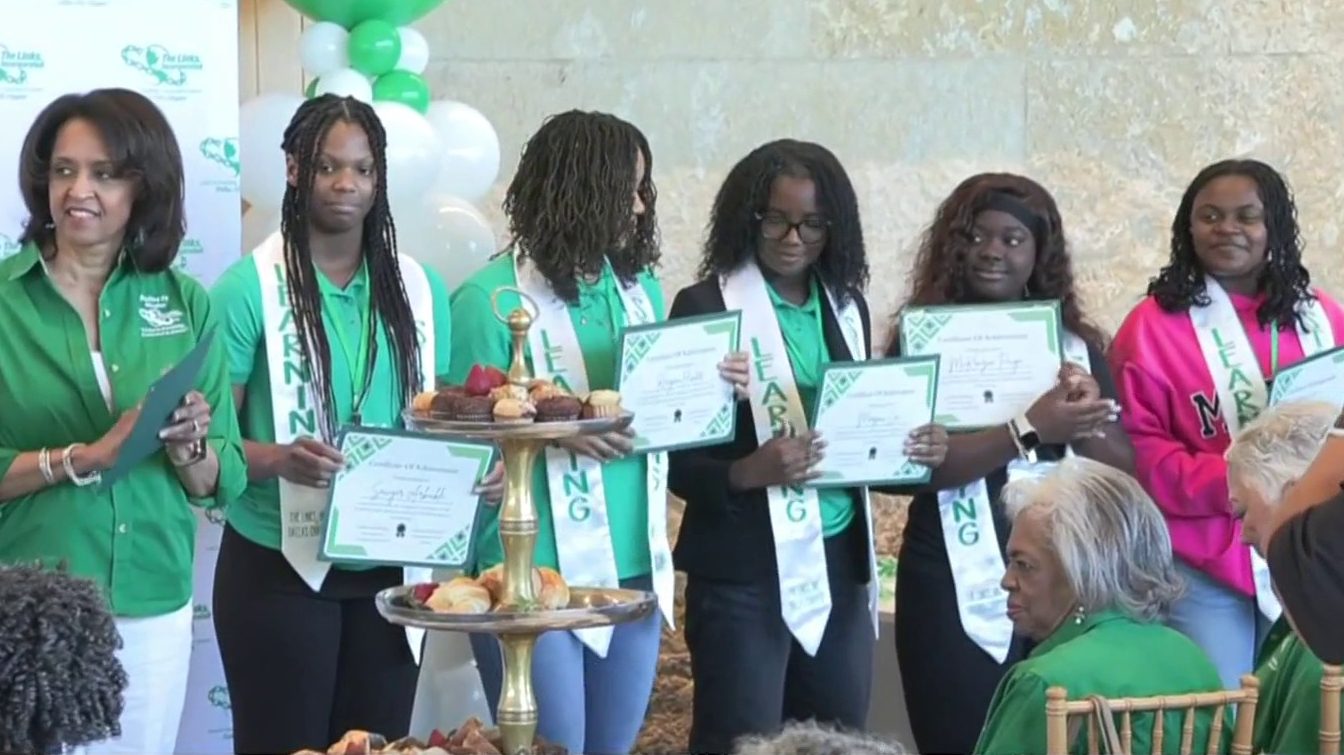Forty years ago, Mustang Island State Park opened its gates with little fanfare.
The Corpus Christi Caller-Times reports the lead-up to the park's creation and opening was a wild ride of political machinations and court battles that went all the way to the U.S. Supreme Court and ended with Ada Wilson forcing the Texas government to buy her land on Mustang Island, ensuring future generations could enjoy its natural state.
The state of Texas had been attempting to create a water exchange pass between Corpus Christi Bay and the Gulf of Mexico for years.
Oilman Sam E. Wilson had purchased the entirety of Mustang Island, excluding Port Aransas, in 1944 with the intention of turning it into a resort area like Miami Beach. In early 1970, Ada Wilson, Sam Wilson's widow, offered to donate 400 feet of right of way to the state to allow the creation of a pass.
To call the eccentric local philanthropist self-aggrandizing doesn't give the whole picture of the wealthy widow. She had an extremely well-developed appreciation of her own accomplishments -- often backed up with outlandish statements that were difficult to verify. But she was also known for her grandiose sense of generosity -- the Ada Wilson Hospital for Crippled Children chief among them.
State Rep. Frances "Sissy" Farenthold convinced Wilson the land could be used for a greater good and needed to be preserved. Rather than sell to developers, Wilson offered to sell about 3,965 acres of land to the state for $4.2 million.
The chairman of the Texas Parks and Wildlife Commission, Pearce Johnson, didn't want it. His two colleagues on the commission did, but Johnson fought tooth and nail. The purchase agreement went through on a two-to-one vote. But when federal funds were received to help fund the purchase -- delivered in a dramatic chartered plane trip from Washington, D.C., to Texas on the last day of 1970 -- Johnson filed suit in court to block the purchase. The judge issued an order barring the use of the federal funds.
Local
The latest news from around North Texas.
Nobody tries to thwart Ada Wilson though. She told Caller-Times reporter Grady Phelps in January 1971 she was confident the land would become a state park.
"I'm going to win," she said, "I have never lost a case in my life." She went on to explain she was well versed in law and was taking law classes at Columbia University.
Her attorneys appealed the decision and in early 1972 the Fifth U.S. Circuit Court of Appeals reversed the original judge's verdict. Then the Texas Attorney General held that the 1970 contract Wilson had with the state had to be honored. Johnson decided to take it higher: the U.S. Supreme Court.
It didn't end well for Johnson. In July 1972, the new parks commission -- now with six members instead of three -- voted 4-2 to go ahead with the purchase. Johnson and new chairman Jack Stone (strategically placed on the commission by Gov. Preston Smith, who also opposed the park) were the no votes, but were overruled by the rest of the commission. In October, the Supreme Court held that Johnson couldn't file suit to prevent the land sale. On Nov. 14, 1972, state officials delivered two checks totaling nearly $3.7 million for 3,570 acres of land to Ada Wilson, completing the sale. Finally.
Following public hearings concerning limiting access to the beach, construction eventually began in 1977. On June 29, 1979, Park Superintendent Tommy Hicks quietly, without ceremony, opened the entrance gate.
The park is sandwiched between Corpus Christi Bay and the Gulf of Mexico and has more than 5 miles of coastline. The 2015 acquisition of the Facey Tract on the north end of the park boosted its total size to nearly 5,000 acres.
The park enjoys year-round visitorship between locals visiting the beach, out-of-towners camping overnight, and Winter Texans during the colder months.
It has 48 recreational vehicle sites with electric and water hookups along with primitive camping on 1.5 miles of the beach.
Coastal Bend beach lovers are faced with a question: Why pay an entrance fee to come to Mustang Island State Park when there are spots all along Mustang and Padre islands where you can go for free?
"I think it's important for people to understand what our park had to offer versus local beaches," Park Superintendent Scott Taylor said. "If you're just heading out to the beach to hang out and be left alone, really any beach will do. If you want to learn more, if you want to experience what nature has to offer, we offer those opportunities, as well as we try to offer a much more family friendly environment through our law enforcement presence."
The park hosts interpretive programs -- the term for teaching visitors about the natural and cultural features in the park -- most weekends during the summer. Some recent events include Kayak 101, with a kayak provided by the park, and Ask a Ranger, where the park interpreter can answer visitors' burning questions like "What lives inside those holes in the sand?" (ghost crabs) and "Why don't you scrape all the seaweed off the beach?" (The seaweed is part of the biosystem and state parks try to maintain as natural a beach as possible).
The park is also part of the Mustang Island State Park Paddling Trail, a 20-mile trail that extends into Port Aransas along Corpus Christi Bay and is an excellent spot for fishing and birding. A fishing license is not required when fishing inside a Texas state park's boundaries.
According to Texas Parks and Wildlife's most recent state records, 180,507 visitors frequented the park between September 2016 and August 2017. That's 25,000 visitors more than the previous year.
Then Harvey came to town.
When Hurricane Harvey swept through the Coastal Bend on Aug. 25, 2017, Port Aransas and Rockport bore the brunt. The park, less than 10 miles from Port Aransas city limits, suffered from that driving wind and rain, along with storm surge flooding that came from the bayside of the island.
All of the buildings received damage: the entrance booth was destroyed, the day use parking lot next to the beach was almost completely washed away and the bathhouse, which housed restrooms and shower facilities for overnight campers, was rendered unusable.
With the bathhouse out of service, the park couldn't stay open for overnight camping.
But the new bathhouse was completed in mid-July, clearing the way for overnight camping again. Campers showed up immediately and Taylor said reservations, which can be made up to five months in advance, are steady.
Josh and Karen Richards stayed at the park recently with their three kids in one of the RV spots. This was their first visit to Mustang and they planned to spend the majority of their time on the beach, with a little shopping and miniature golf thrown in.
The family, who hail from Azle, have had a Texas Parks & Wildlife annual pass for several years and have visited parks around the state.
The new bathhouse includes separate women's and men's restroom, shower and changing facilities; two family restrooms each equipped with a toilet, sink, changing table and shower; and four outdoor rinse stations for those who don't want to cart home a bucket of sand inside their bathing suit and shoes. There's even a water fountain with a spot for refilling water bottles and a lower bowl for Fido to have a drink.
"The (new) bathrooms are awesome," said Karen, laughing. "We saw pictures online of the old bathrooms."
The Friends of Mustang Island State Park is a nonprofit group that helps with fundraising, special events and other outreach projects.
"We hope to raise awareness about the park's unspoiled beauty but to also raise money to enhance the natural features of the park." said group founder and board secretary Alexis De Leon.
Though less than a year old, the group has begun planning for their first fundraising event, a plogging event paired with a 5K. Plogging is a recent phenomenon out of Sweden that involves picking up litter while jogging.
So go out, enjoy some fishing or camping and get some sand between your toes. Ada Wilson really wanted you to.



